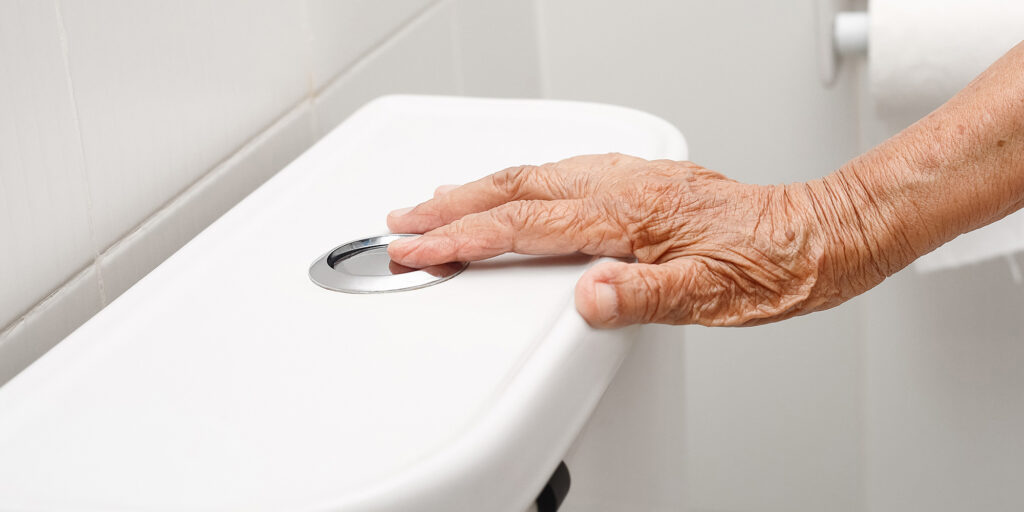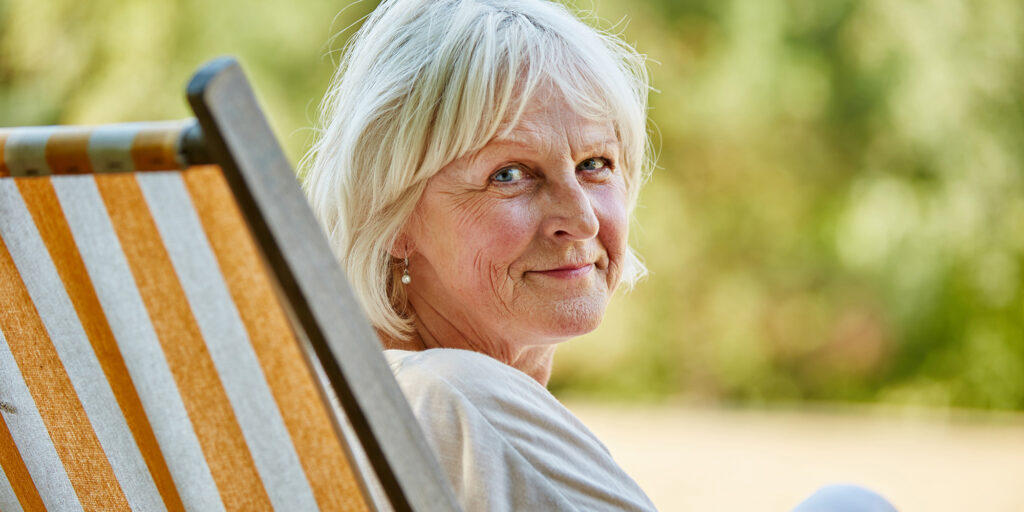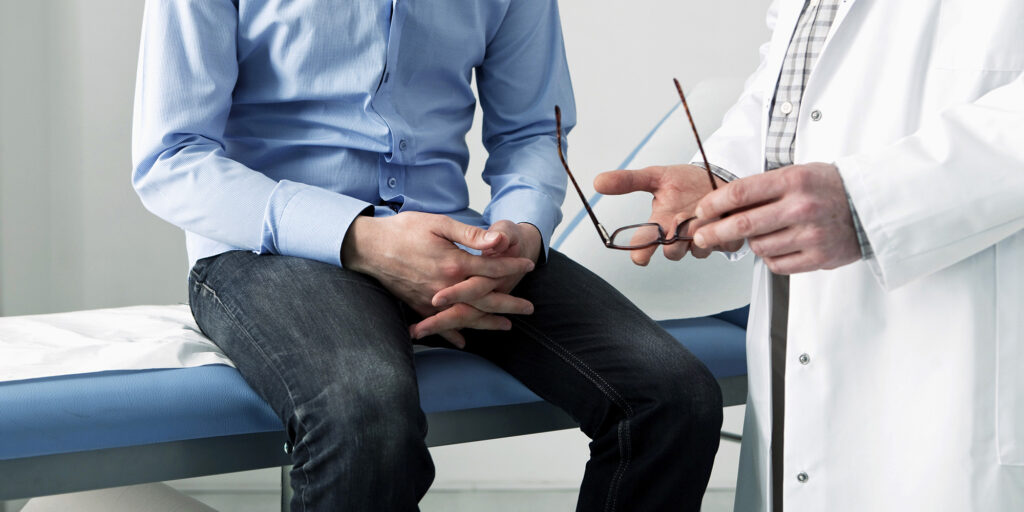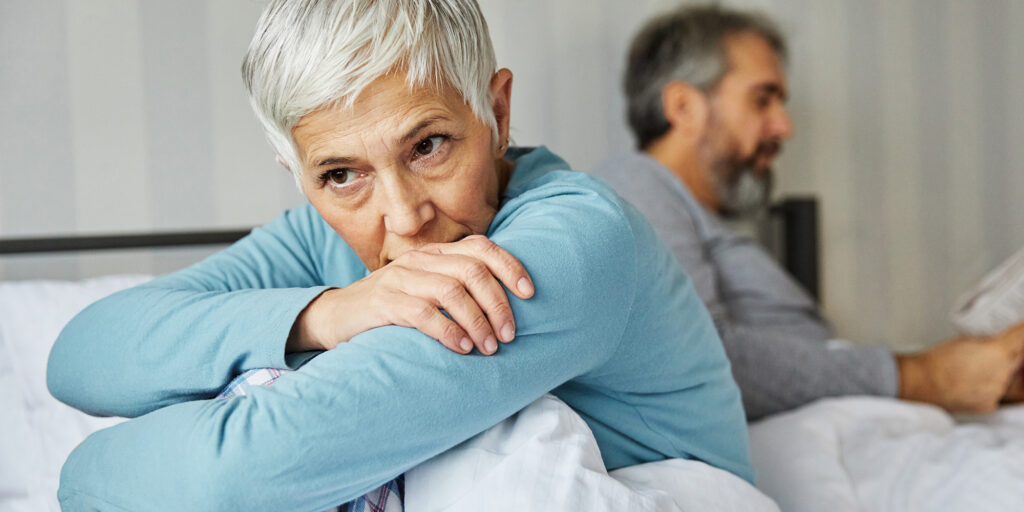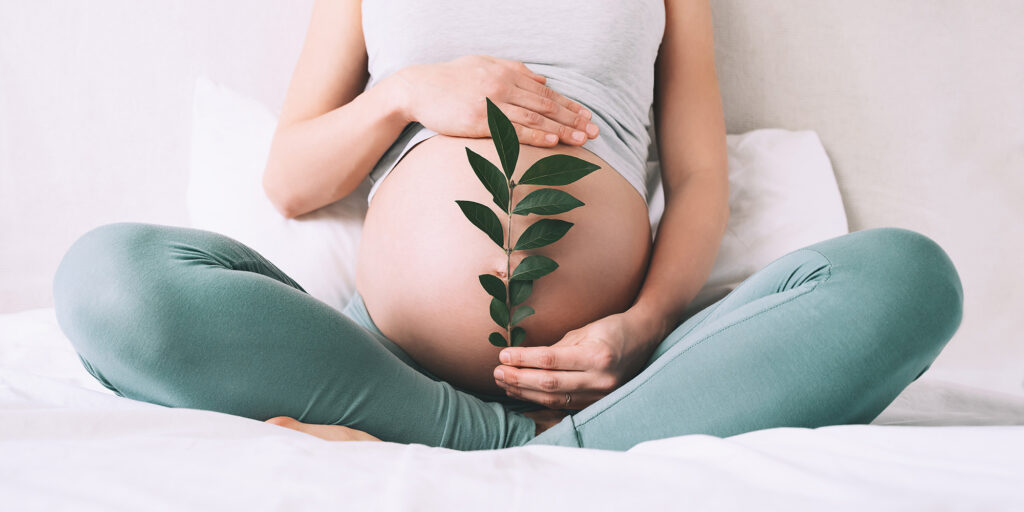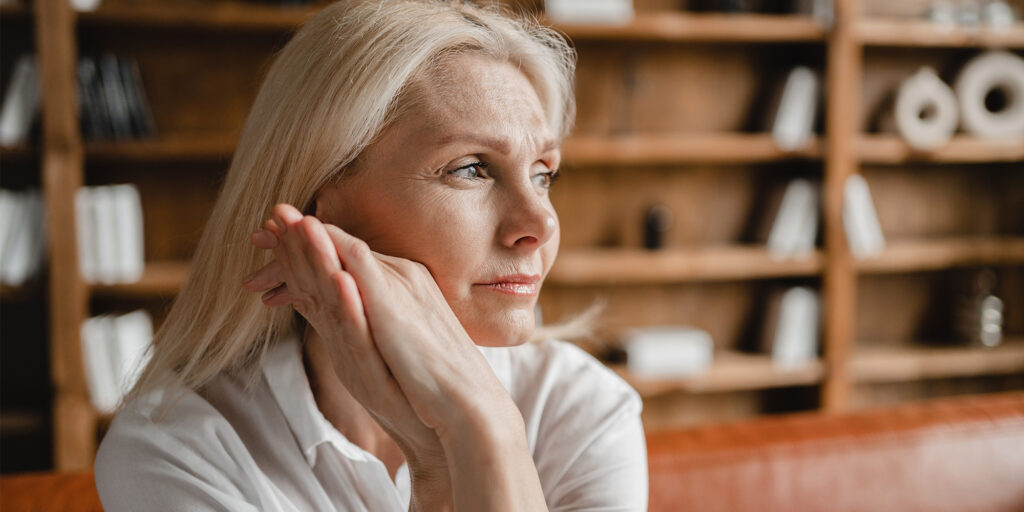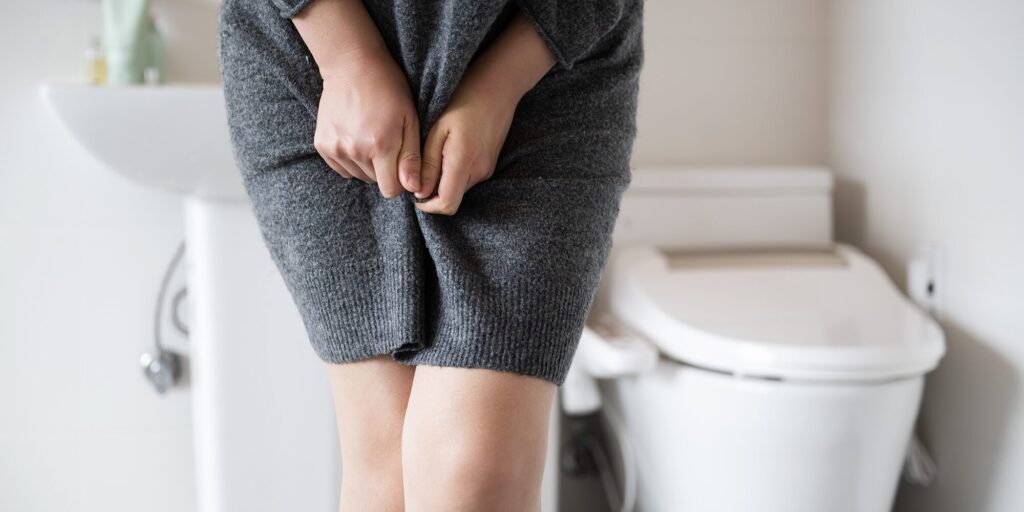For women with incontinence
Bladder weakness - you are not alone!
Together for continence
Incontinence, or the involuntary loss of urine or faeces, is the most
widespread but least known health problem in Western Europe. In Germany alone, around 10 million people are incontinent in one way or another. The German Continence Society (Deutsche Kontinenz Gesellschaft e.V.) assumes that the number of unreported cases is much higher.
Those affected include women and men of all age groups and represent a serious hygienic and social problem for those affected. Incontinence can cause feelings of isolation and social embarrassment, which can lead to people being reluctant to seek help.
By using modern incontinence products, those affected can actively participate in life while maintaining discretion when wearing incontinence products.
Incontinence in women
by age
General information about incontinence
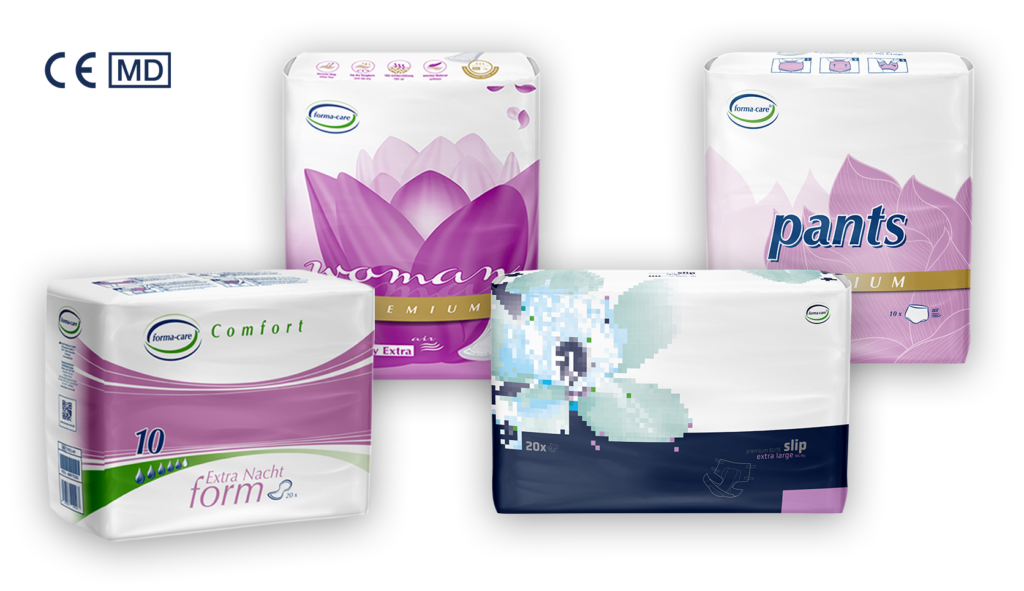
forma-care incontinence products
for women
Whether at home or on the move - we have the right solution for every situation, tailored to your needs. Our products offer safety, comfort and discretion, and are based on our many years of experience in everyday care. Stay active and mobile, even with bladder weakness!
Frequently asked questions
Normally, the frequency of urination varies from person to person and depends on various factors such as age, fluid intake, health status and individual bladder volume. In general, a healthy person will empty their bladder around 5 - 7 times a day, although some people may urinate more frequently or less frequently. It is important to take care of your own body and consult a doctor if you notice any sudden changes or irregularities to rule out possible health problems.
No, bladder weakness does not only affect older people. Although the risk of bladder weakness increases with age, people of all ages can be affected. Various factors such as pregnancy, childbirth, obesity, surgery, injury and neurological conditions can cause younger people to suffer from bladder weakness. It is important to note that bladder weakness is a common health problem that can affect people of all ages and that there are treatment options available to improve quality of life.
Pelvic floor exercises can really help with stress incontinence. Especially after pregnancy and childbirth, many women report how well regular pelvic floor exercises have helped them.
The amount of fluid intake can have an impact on the frequency of incontinence symptoms, especially if you suffer from urinary incontinence. Reduced fluid intake can lead to less urine being produced and therefore less frequent urination. This can temporarily help to alleviate the symptoms. However, adequate fluid intake is essential for overall health. It is recommended that you speak to a doctor or incontinence management specialist for personalised recommendations and solutions for your specific incontinence problem.
Yes, it is possible to leak urine during sexual intercourse. This can be due to a number of reasons, including weakness of the pelvic floor muscles, especially in women after childbirth or in men after prostate surgery. Urinary incontinence during intercourse can be distressing, but there are various treatment options and aids that can help to manage the problem. It is advisable to speak to a doctor about possible causes and solutions in order to find suitable measures for treating or dealing with urinary incontinence during sexual intercourse.
Sanitary pads are not specifically designed to absorb urine and may not offer the same protection and comfort as specialised incontinence products. It is therefore recommended that people with persistent bladder weakness use products specifically designed for this purpose, such as incontinence pads or pants. These offer better protection and comfort for people with bladder weakness.
Useful links
Deutsche Kontinenz Gesellschaft e.V. offers comprehensive information on the subject of incontinence as well as a large number of addresses of self-help groups and advice centres.
Inkontinenz Selbsthilfe e.V. is an association that operates throughout Germany and was founded in 2006 by those affected and their families. The main aim of the association is to improve the quality of life of incontinence sufferers and their families.


